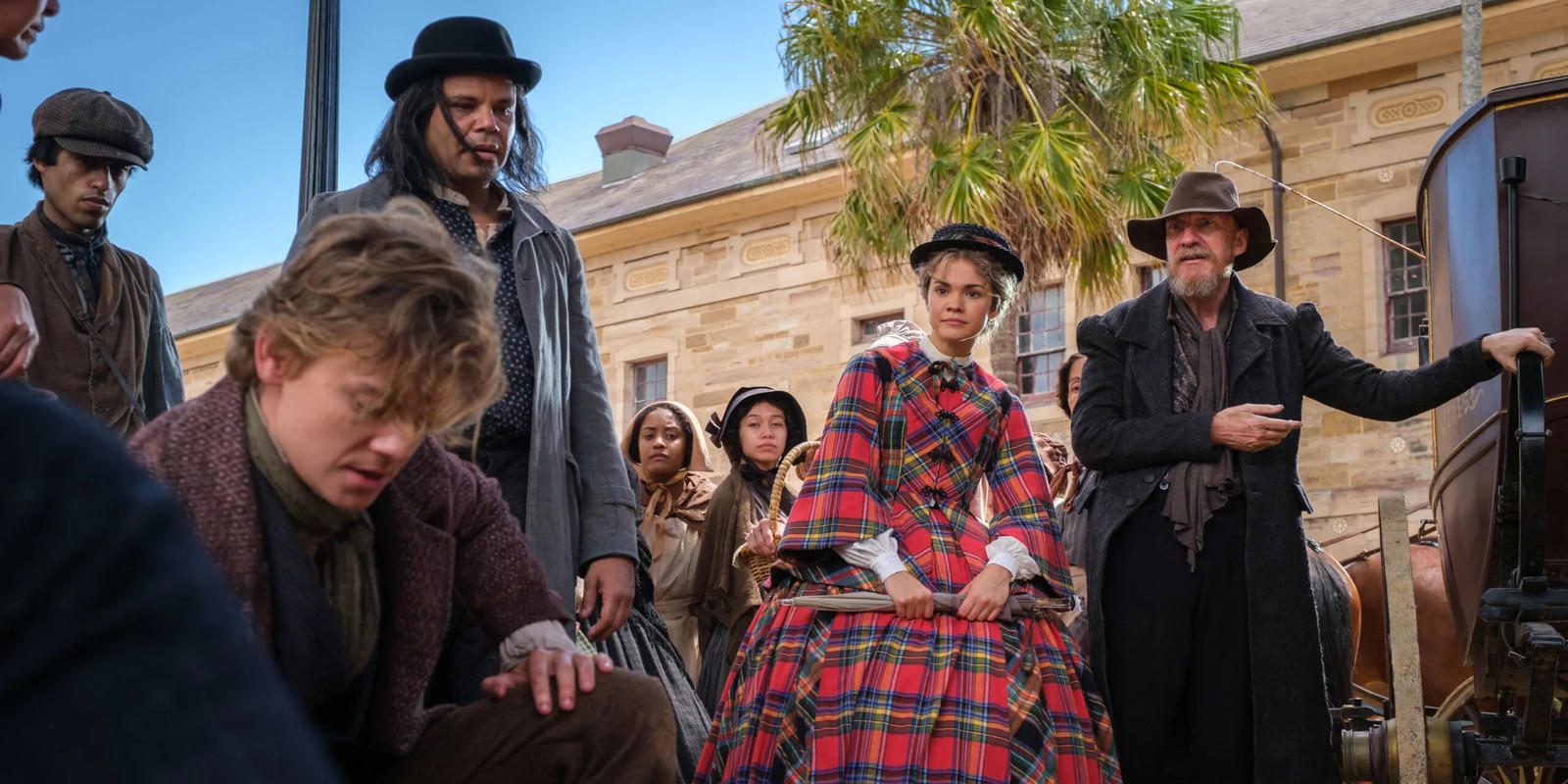Created by James McNamara, David Maher, and David Taylor, ‘The Artful Dodger’ unfolds its story against the backdrop of the 1850s. The storyline revolves around Jack Dawkins, a man leading a respectable life as a surgeon in Australia. However, his past catches up with him when Fagin, a figure from his previous life, reemerges. As Fagin gets into the untold facets of Dawkins’ history, he endeavors to pull him back into a life characterized by London’s criminal underbelly and a repertoire of petty crimes.
Succumbing to Fagin’s persuasion, Dawkins is lured to reluctantly embrace his former identity as the Artful Dodger. With Thomas Brodie-Sangster headlining the show in the role of Dawkins and David Thewlis portraying Fagin, ‘The Artful Dodger’ is quintessentially a period drama. Stories embedded in history always raise the question of whether it is based on a true story or not, so let us find that out.
The Artful Dodger is Loosely Rooted in Reality
Contrary to being rooted in reality, ‘The Artful Dodger’ draws its inspiration from the creative realms of fiction. The series creators have crafted the screenplay based on a few of the characters of Charles Dickens’ timeless classic ‘Oliver Twist.’ In the novel, the character of Dawkins, also known as the Artful Dodger, is a skilled and charismatic pickpocket who becomes a symbol of the street-smart, youthful offenders. Fagin leads a group of juvenile delinquents in London and serves as a central figure in criminal activities and is the antagonist under whom Oliver and Dawkins operate.

The series places these characters a few decades after the book ends and starts when Dawkins has become an adult and escaped Fagin. Charles Dickens was inspired to write ‘Oliver Twist’ in response to the social issues and injustices prevalent in 19th-century England. The Poor Law of 1834, a legislative measure aimed at reforming the country’s welfare system, particularly influenced Dickens’s depiction of the harsh realities faced by the impoverished. The character of Dawkins, the Artful Dodger, exemplifies the plight of exploited child labor in Dickens’s narrative.
In the story, Fagin manipulates and exploits these vulnerable children for criminal activities, reflecting the systemic issues that arose from inadequate social policies and the exploitation of disadvantaged youth. During the 18th and 19th centuries, the practice of sending prisoners to Australia served as a form of penal transportation and colonization for the British Empire. Australia became a destination for convicts, providing a solution to the overcrowded prisons in Britain while establishing a penal colony on the other side of the world. The transportation of convicts to Australia extended to individuals of all ages, including children.
Juvenile offenders, often convicted for relatively minor crimes, were among those sent to the distant continent as a means of punishment and, ostensibly, rehabilitation. This practice aimed to create a deterrent effect while simultaneously populating and developing the newly established Australian colonies. So, the character of Dawkins being found in Australia is a reflection of the true operation of the erstwhile society. The mid-19th century also saw the consolidation of capitalist economies and the emergence of new economic classes, reflected in the character of Dawkins, portrayed as a surgeon navigating the professional opportunities and challenges of the time.
The series explores the advancements in medical practices during this period, highlighting the evolving nature of healthcare and the increasing professionalization of the medical field. Additionally, the portrayal of Dawkins in Australia aligns with the broader historical context of European expansion and influence, providing a nuanced insight into colonial dynamics, immigration, and cultural changes during a transformative period in history.
While ‘The Artful Dodger’ may not be based on a specific true story, its narrative resonates with the collective experiences of countless individuals living during the 1850s. Through its vivid storytelling, the series brings to life the struggles, aspirations, and complexities of individuals grappling with the profound changes shaping their world. In this way, even though the characters may be creations of fiction, their journeys echo the untold stories of those who lived in similar circumstances, contributing to a rich diaspora of historical understanding.
Read More: Best Period Dramas on Amazon Prime


You must be logged in to post a comment.